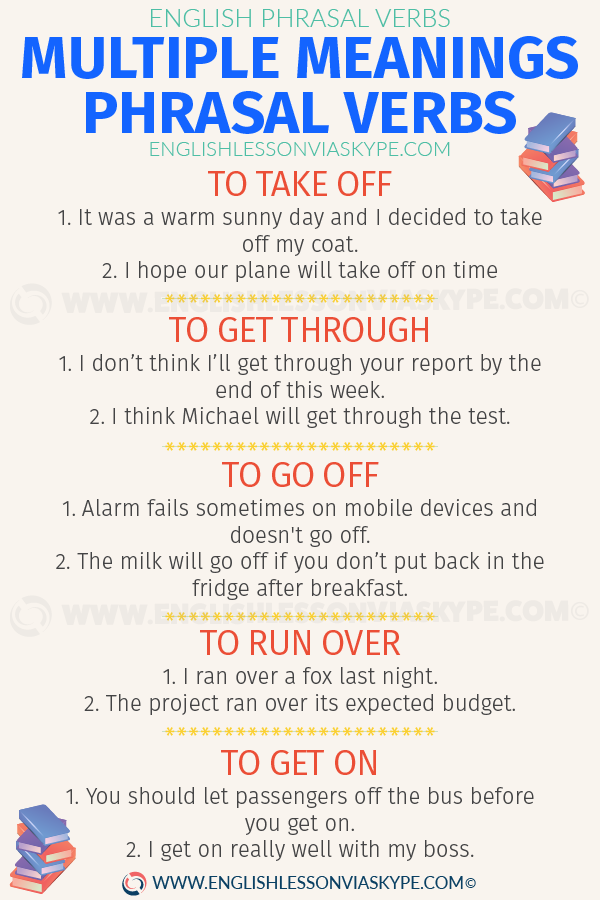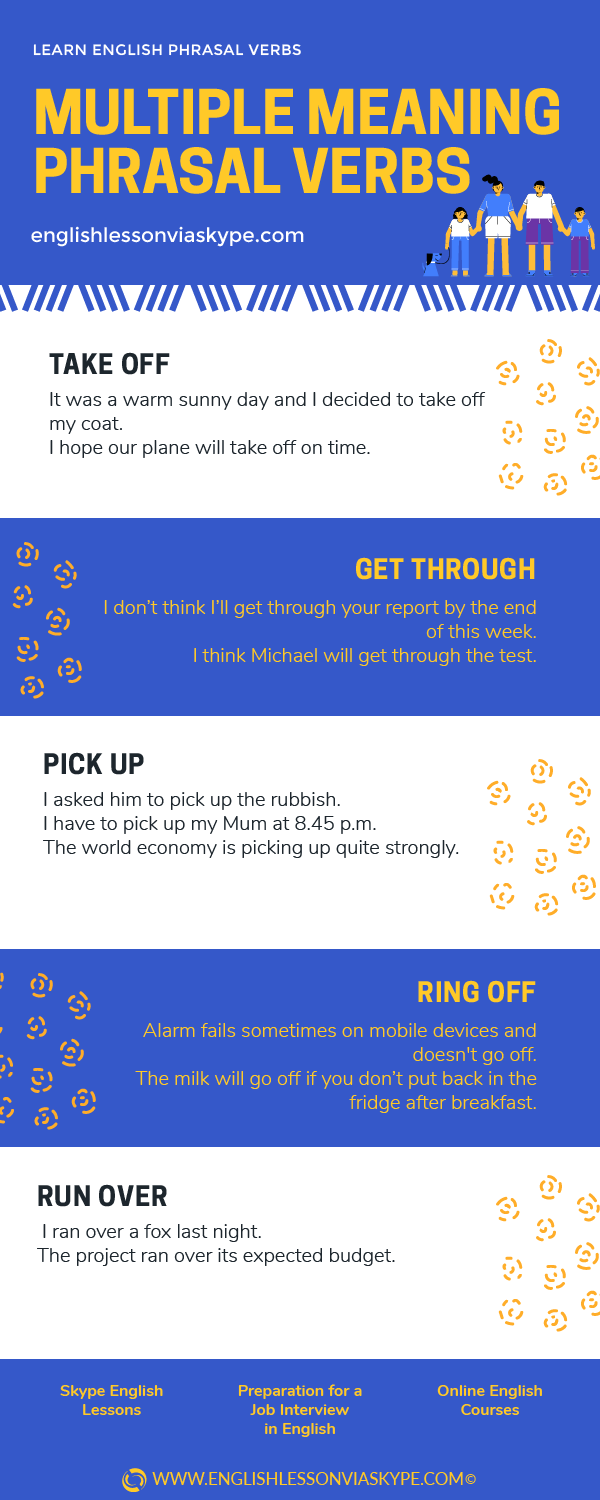Learn phrasal verbs with multiple meanings.
Table of Contents
Harry
10 Phrasal Verbs with Multiple Meanings

Phrasal verb is a very unique and quite complex construction of the English language.
Many ESL students have difficulties understanding the meaning of phrasal verbs. I hope you are more confident now with the grammar of phrasal verbs. In case this is not confusing enough for you, many phrasal verbs have more than just one meaning.
Let’s have a look at popular phrasal verbs with multiple meanings.
Intermediate to Advanced English Marathon

INSANITY: doing the same thing over and over again and expecting different results.
Albert Einstein
- What you'll learn:
- better understanding of more complex grammar structures
- advanced English vocabulary words
- British & American slang
- perfect your listening skills through practing different accents
- This marathon is for you if you're:
- stuck at an intermediate English level
- tired of confusing explanations
- a mature student
- shy & introverted
to take off
1. to remove
Example: It was a warm sunny day and I decided to take off my coat.
2. to leave the ground
Example: I hope our plane will take off on time.
to get through
1. to finish
Example: I don’t think I’ll get through your report by the end of this week.
2. to pass
Example: I think Michael will get through the test.
to pick up
1. to take it from a low place
Example: I asked him to pick up the rubbish.
2. to collect
Example: I have to pick up my Mum at 8.45 p.m.
3. to improve
Example: The world economy is picking up quite strongly.
to go off
1. to ring
Example: Alarm fails sometimes on mobile devices and doesn’t go off.
2. to go bad
Example: The milk will go off if you don’t put back in the fridge after breakfast.
3. to explode
Example: Luckily the bomb failed to go off.
to run over
1. to hit someone with a car
Example: I ran over a fox last night.
2. to exceed
Example: The project ran over its expected budget.
Phrasal Verbs with Multiple Meanings

Share and help other students to improve English skills
to brush off
1. to remove something with a brush
Example: Sarah brushed off the dust from her golf shoes.
2. to dismiss, to ignore a person
Example: Peter brushed off all objections to his plan.
to turn around
1. to improve dramatically from bad to good
Example: Half year-end results were not great but we managed to turn around things by the end of the year.
2. to change direction, to make a u-turn
Example: He had to turn around to go back home to get his passport.
to get on
1. to board (a bus, train, ship etc)
Example: You should let passengers off the bus before you get on.
2. to have a friendly relationship
Example: I get on really well with my boss.
to make up
1. to restore good relationships after a quarrel
Example: After an argument I had with my best friend last week we finally made up.
2. to invent something
Example: He made up a story to get out of trouble.
to work out
1. to exercise
Example: To maintain a healthy lifestyle it is recommended to work out regularly.
2. to resolve
Example: “Everything works out in the end. If it hasn’t worked out yet, then it’s not the end.” – Tracy McMillan
More information can about phrasal verbs with multiple meanings can be found on the British Council website.
What do you find the most confusing about phrasal verbs? Let us know in the comments below.
improve english on a budget
Online English Courses from €7.99
More Information
For more information on English Idioms, English Phrasal Verbs and English Vocabulary Words, check out the following links:
English Collocations with READ
You will love these English lessons

Learn English With The News
Learn English with the news. Throughout this English lesson, you’ll also learn new advanced vocabulary that will help you sound


English Expressions Related to Work
Here are some English words and expressions related to work. Work (the job we do) and working take up a


English Vocabulary – Shopping
Where do you go shopping for groceries? Do you drive to a large supermarket, or pop into a small convenience store


